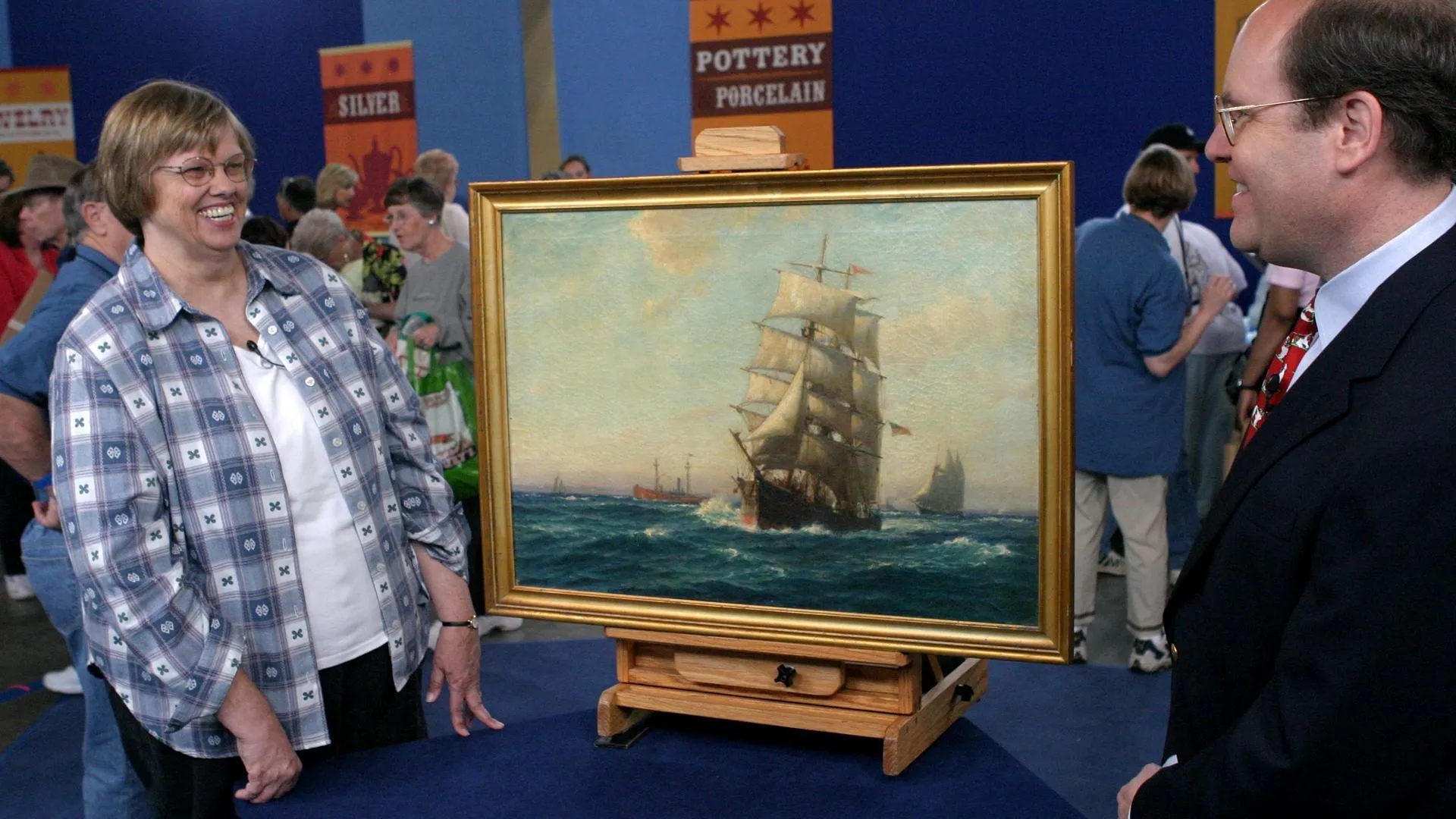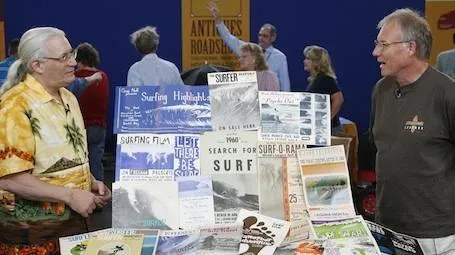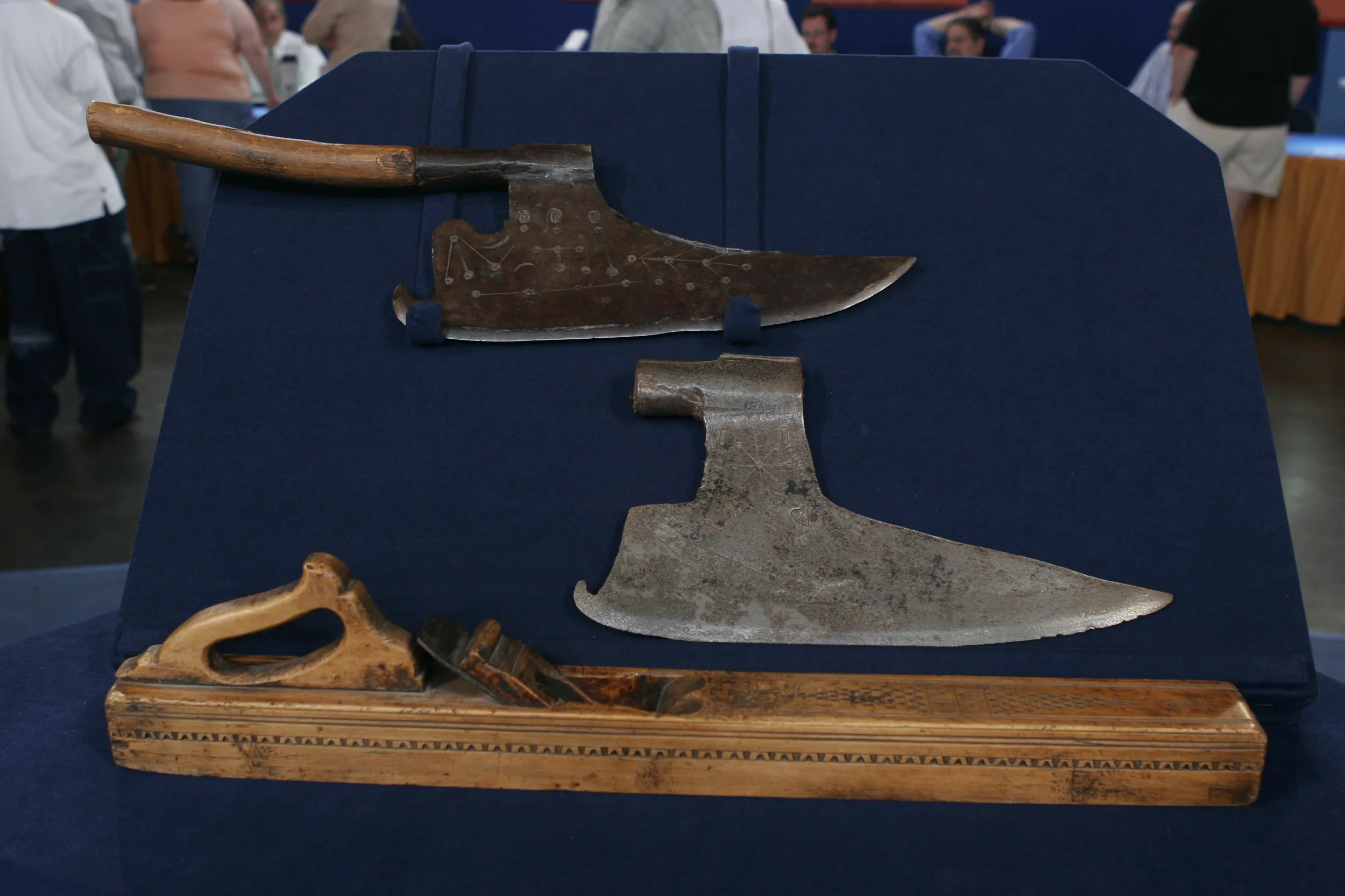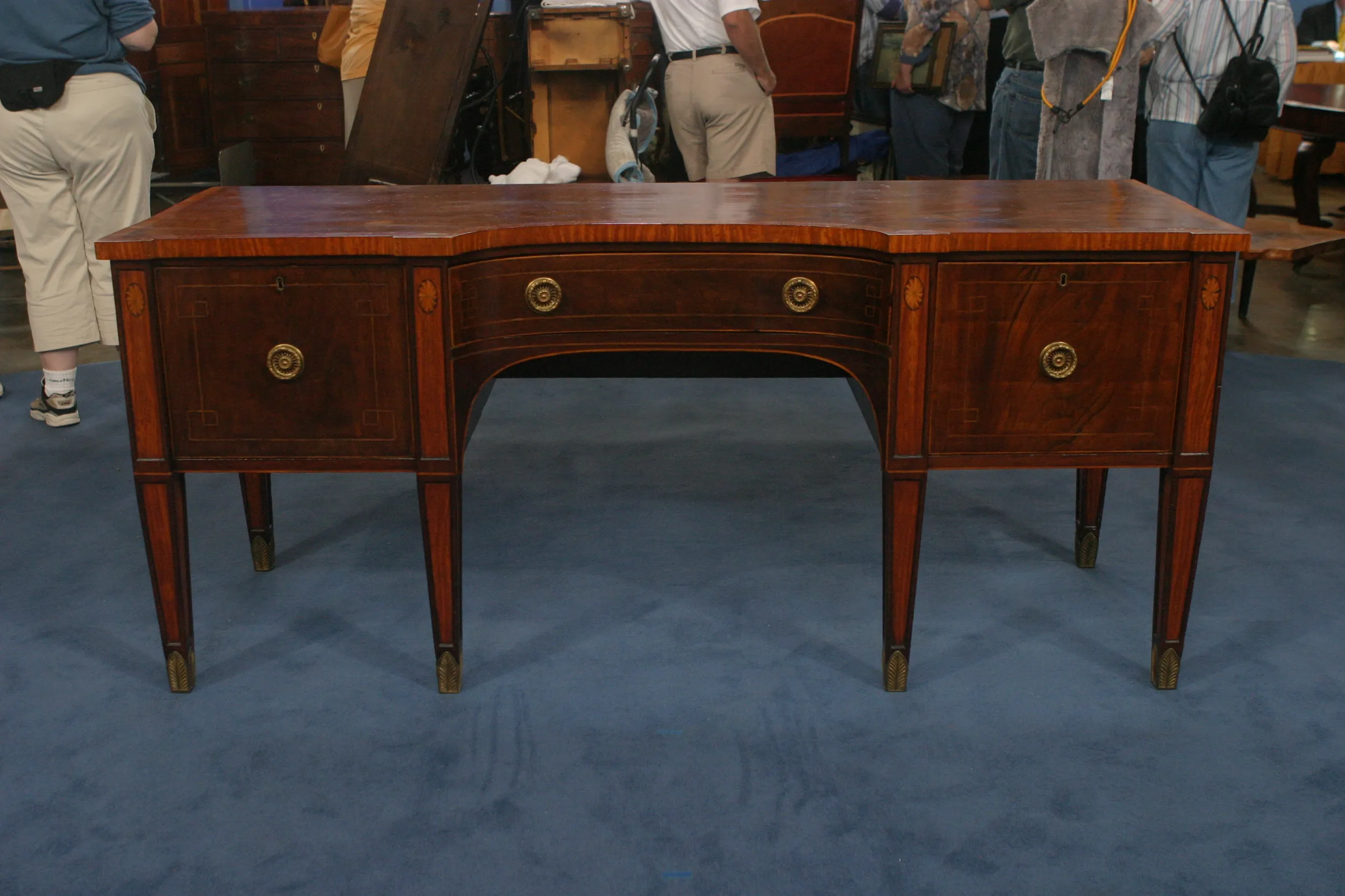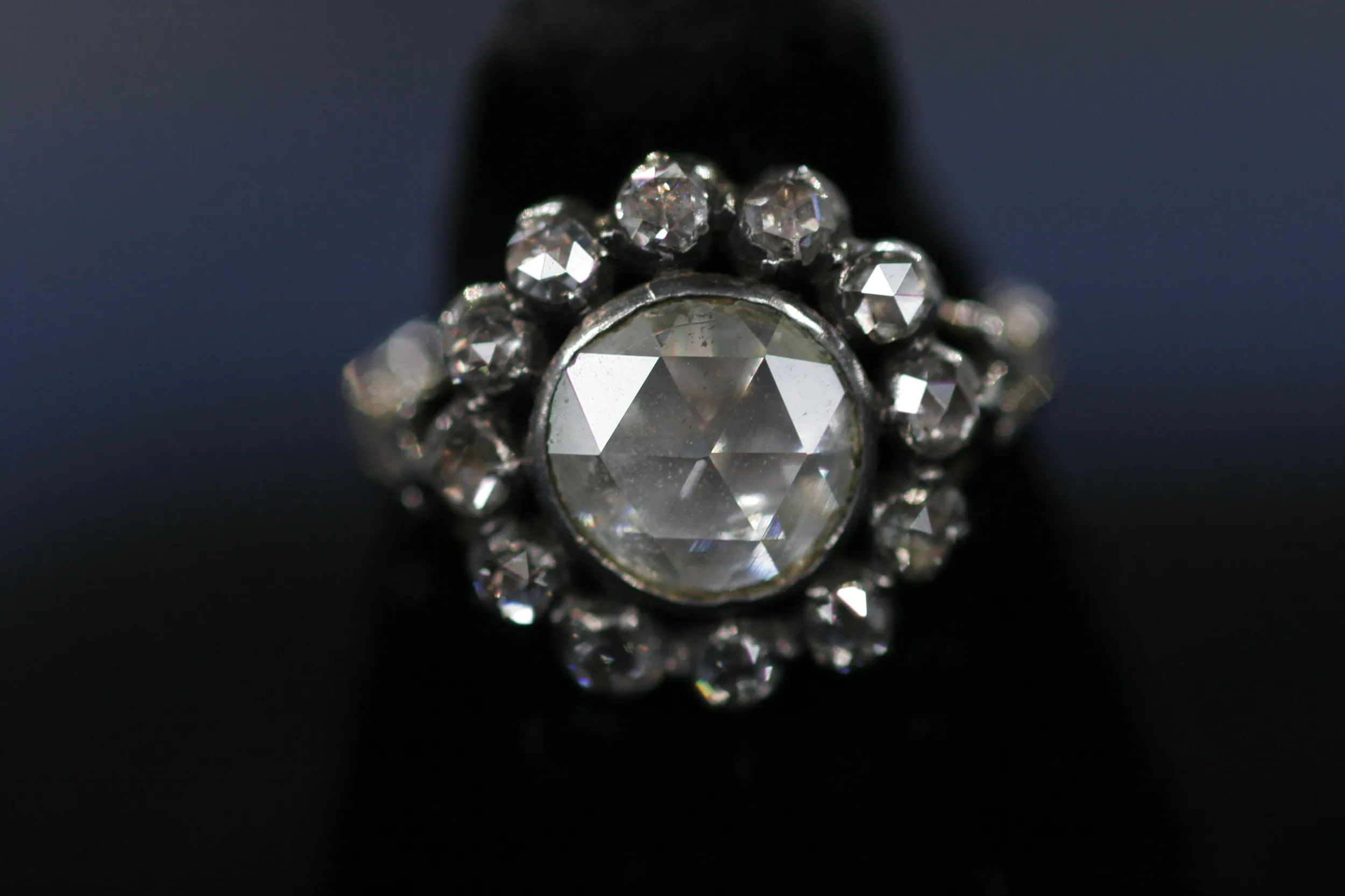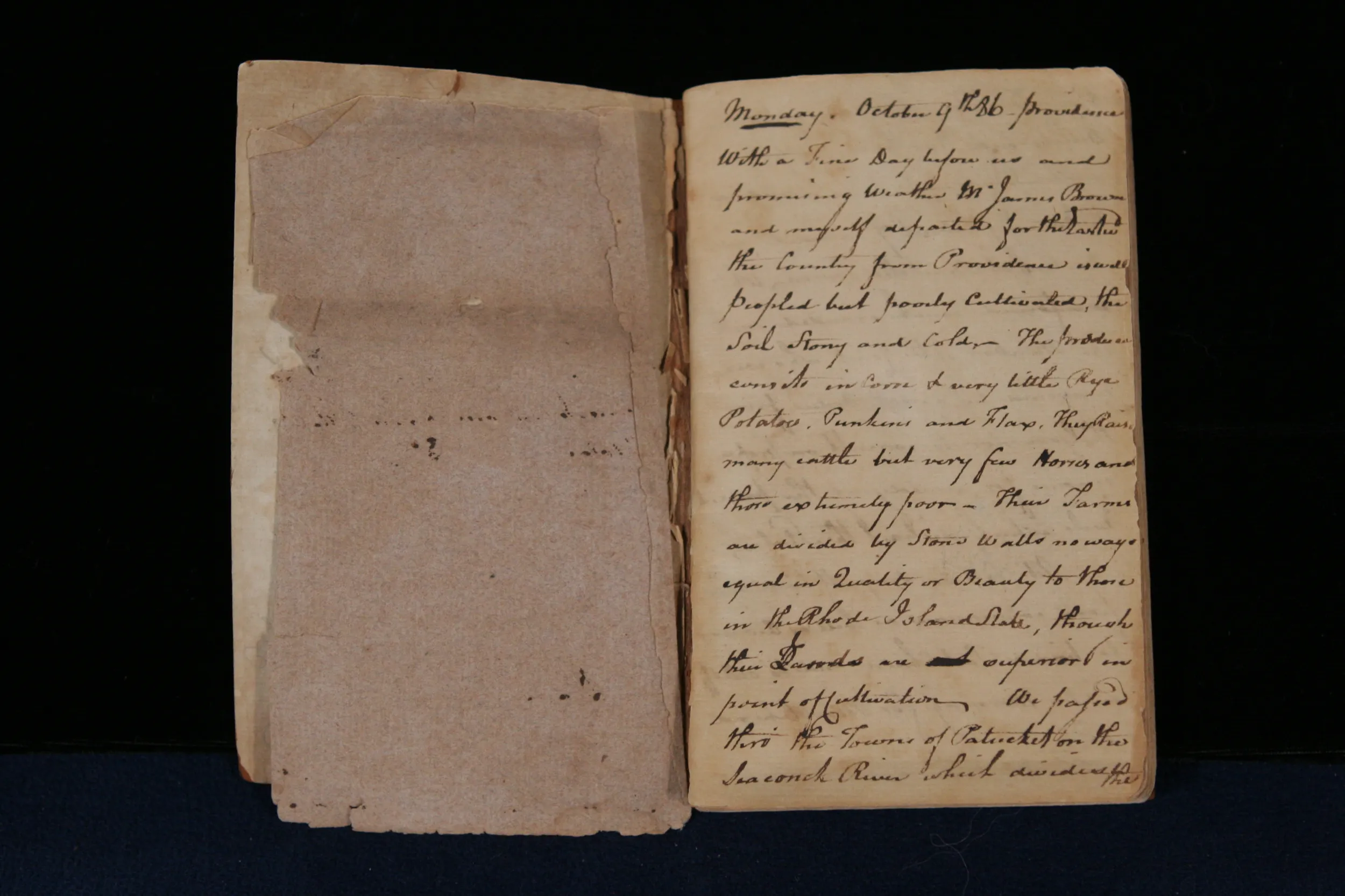GUEST: This was passed down through my family for generations. It's just kind of an archaeological dig when you go through the desk, because there's things all the way from the 1600s-1800s, all the way up to my grandparents in the '60s. There's a note that my grandmother wrote in there that she said that it was brought over with the Royals in 1621. And so they settled in Virginia, South Carolina area.
APPRAISER: 1621, okay.
GUEST: Yeah.
APPRAISER: Well, it is an extraordinary desk. And the miniature child size, to collectors, just makes it all the sweeter. This desk has a glow about it. And you could see how the different appraisers sort of all came around to bask in that glow a little bit. It's what we in the field call "in the black." And that means it has not been touched. It's absolutely original finish. It's original bat wing brasses, original feet. It shows the wear and use of that long history in your family, but it remains in remarkable condition. The 1620 history here is more relevant to your family than the actual desk. It may be accurate for when your family arrived, but the desk is not English, it's American. And it probably was made for someone among your early ancestors about 1760 or so.
GUEST: Oh, okay.
APPRAISER: You said that they settled in Virginia. This is a, in my opinion, a Massachusetts desk. And there's a really fascinating history where early Boston-- 1750-60 Boston-- is sending shiploads of furniture to the ports of Virginia. So this is walnut that probably traveled from Virginia to Boston, got turned into a desk, and then was shipped as venture cargo down and entered your family sometime probably in the mid-18th century. The secondary wood is white pine, which is in keeping with other Massachusetts and New England desks of this time. Tell me about family names here.
GUEST: The Wades and the Royals are the ones that we have the lineage on.
APPRAISER: And the Carters, too, I think, are among your ancestors.
GUEST: Yes, the Carters.
APPRAISER: Well, those are important names to people in Virginia and South Carolina. Robert and John Carter were among the wealthiest and most important Virginians of the 17th century. And I suspect, with more time, if you trace your genealogy back, you might end up linking yourself in to that Robert and John Carter 17th-century history and piece together more of the puzzle. When we started to open the desk, I realized this is-- you know the Antiques Roadshow logo, which is a treasure chest?
GUEST: Yes.
APPRAISER: That is this desk. This is like an ark that has traveled through time with your family since the mid-18th century. Every drawer is absolutely chock-full-- documents, objects of every kind. It traces their history from Virginia to South Carolina to Kentucky and even down here to Texas, uh, where I gather, um, your grandfather or great grandfather came.
GUEST: Yeah.
APPRAISER: Just to show the tip of the iceberg here, we have Virginia- related objects. There are 15 daguerreotypes of your early family. There are surveys and deeds and account books. In Texiana, there are gold nuggets that prospectors in your early history picked up. There are early postage stamps from 19th-century Texas, which have their own collector market. There's a whole archive over here of Civil War related. There's probably 100 Confederate bills there. There are original slave receipts. There's even this piece, which I don't think you even knew was in here. I've never seen it unfolded. And we haven't even gone through the whole desk yet. But this in the bottom drawer-- War of 1812 printed handkerchief showing the glorious battle of New Orleans, which was Jackson's great victory in the War of 1812, in remarkable condition. I do want to just show briefly the inside here.
GUEST: Oh, yeah.
APPRAISER: The desk itself is a great collector object. But what's in it makes it really pretty monumental. It is a case where the sum of the parts is greater than they would be separately, by far. I mean, there are medical instruments and scales. There's a tooth puller, there's pocket watches. It's just incredible. I would say that as a historical archive, there's the potential here that this is a $100,000 collection. Um, the desk alone would probably be $25,000 to $35,000, is what it would reach at auction. The Confederate bills maybe at $50 apiece-- some more and some less. It just adds and adds and adds to itself. So, thank you so much for bringing it in.
GUEST: Thank you.

